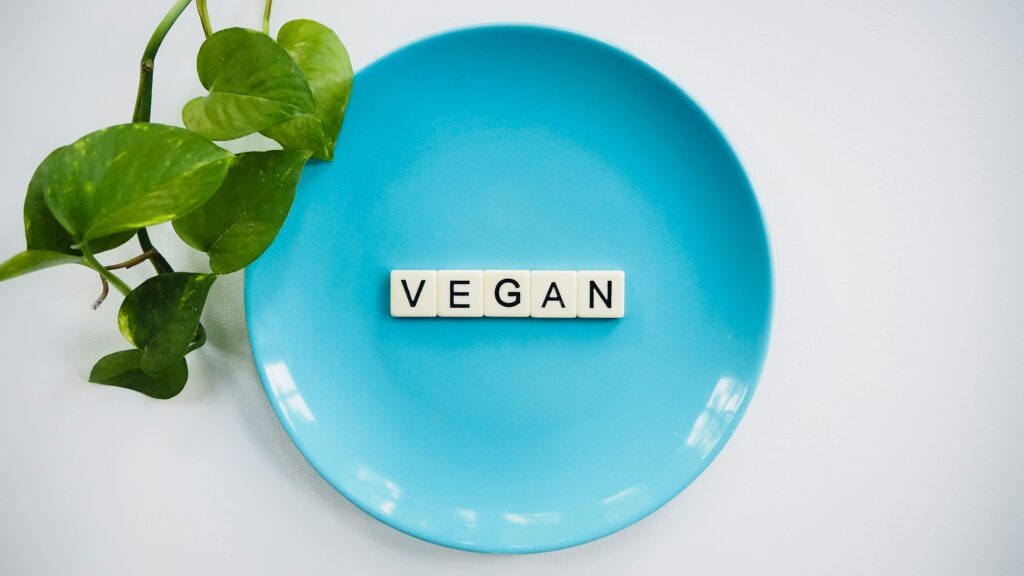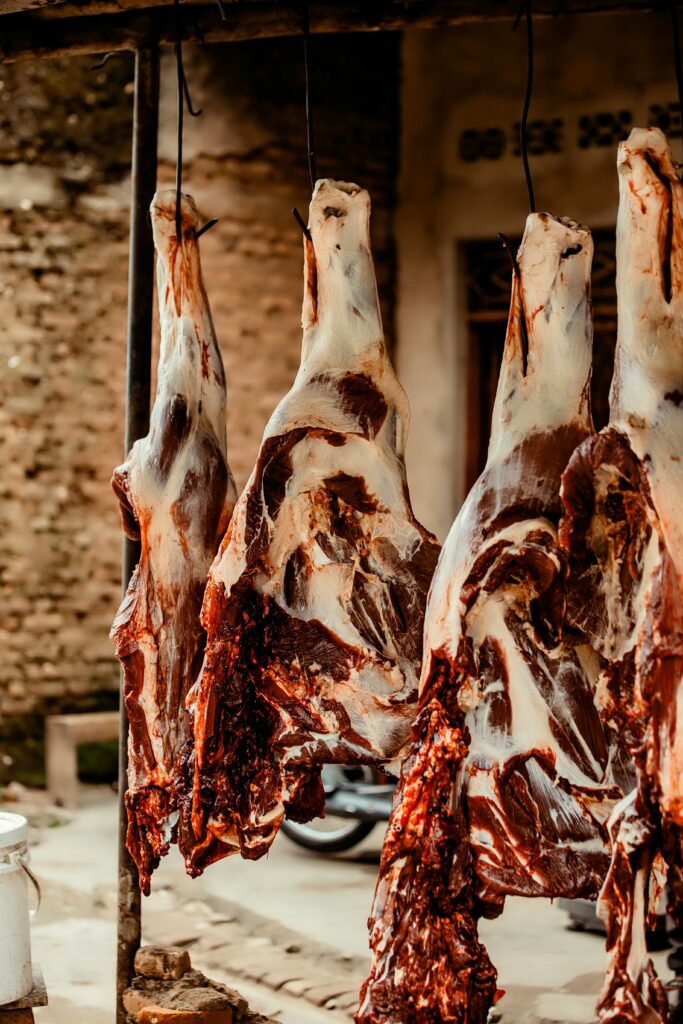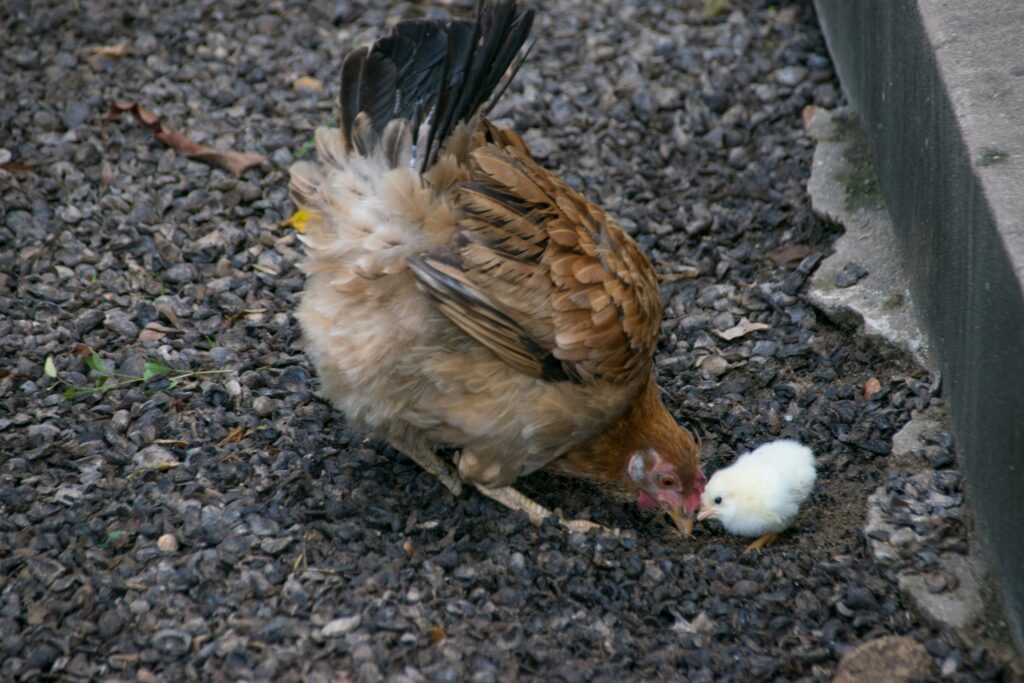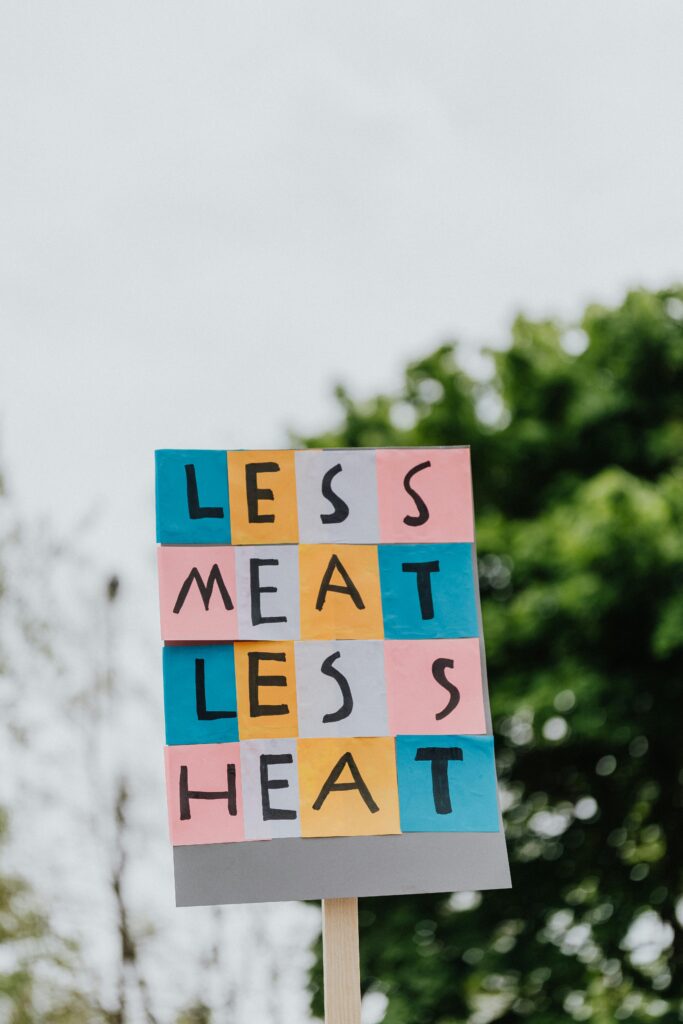Veganism is more than just a diet — it’s a lifestyle that creates a powerful impact on the world. By choosing plants over animal products, you help save water, reduce greenhouse gases, and slow deforestation. Each vegan meal also spares the lives of animals and protects oceans from overfishing. Beyond helping the planet, veganism can also support better health and well-being. In this article, we’ll explore how going vegan makes a real difference for animals, the environment, and you.

Photo by Vegan Liftz on pexels
1. Saving Animals

Photo by Chris wade NTEZICIMPA on pexels
Choosing a vegan lifestyle directly reduces the number of animals killed for food and other products. On average, one person who adopts a vegan lifestyle PROTECTS over 100 animals every year—including cows, pigs, chickens, and countless fish and other sea creatures. Every plant-based meal becomes a small act of compassion, reducing demand for animal farming and giving animals a chance to live freely.
a) Skip Meat, Eggs, and Dairy
By leaving meat, eggs, and dairy out of your diet, you save countless lives. Each meal you eat without animal products is a step toward a more compassionate world.

Photo by Bansah Photography on Unsplash
b) Avoid Silk, Wool, and Leather
Most people don’t realize that silk production kills silkworms. Thousands are boiled or steamed alive to make a single silk garment.
Wool might seem harmless, but sheep often endure painful shearing practices, injuries, and poor living conditions. Many are ultimately slaughtered for meat.
Leather, sourced from cows, goats, and even exotic animals, is a byproduct of meat and dairy industries. The tanning process also releases toxic chemicals that pollute soil and water.
By choosing plant-based fabrics, organic cotton, or synthetic alternatives, you can enjoy style without harming animals or the environment. Even if you already own these items, simply choosing not to buy them next time makes a difference.
c) Avoid Other Animal Products like Honey
Products such as honey also involve exploitation of animals. Every person who avoids these items contributes to saving over 100 animals each year, helping create a more compassionate world.
2. Conserving Water
Most agricultural land is not used to grow food directly for humans. Instead, it’s often dedicated to raising animals like cows, buffaloes, and chickens, which spend much of their day grazing. These animals are fed large amounts of water and crops to produce milk, eggs, and eventually meat.
By eating meat, you are indirectly consuming the plant food and water that first went to feed these animals. In contrast, a vegetarian or vegan diet allows you to consume these crops directly, using far less land, water, and resources to nourish yourself.
| Item | Water Required to Produce |
|---|---|
| 1 kg of Beef | ~15,000 liters |
| 1 kg of Pork | ~6,000 liters |
| 1 kg of Chicken | ~4,300 liters |
| 1 liter of Cow’s Milk | ~1,000 liters |
| 1 Egg | ~200 liters |
| 1 kg of Cheese | ~5,000 liters |
| 1 kg of Rice | ~2,500 liters |
| 1 kg of Wheat | ~1,600 liters |
| 1 kg of Potatoes | ~250 liters |
| 1 kg of Vegetables (average) | ~300 liters |
| 1 kg of Fruits (average) | ~1,000 liters |
| 1 Cotton T-Shirt (250g cotton) | ~2,700 liters |
| 1 Pair of Leather Shoes | ~8,000 liters |
3. Protect Forests
Animal farming is one of the leading causes of deforestation worldwide. Vast areas of forest, including the Amazon rainforest, are cleared every year to grow crops such as soy and corn — not for humans, but primarily as feed for livestock. This destruction wipes out habitats for countless species, disrupts ecosystems, and accelerates climate change by releasing the carbon stored in trees.
By choosing a vegan lifestyle, you directly reduce the demand for animal feed production. Less land is required to raise animals and grow their feed, which means more forests can be preserved. Forests play a crucial role in absorbing carbon dioxide, producing oxygen, and providing a home for wildlife. Protecting them is essential for maintaining the planet’s biodiversity.
Switching to plant-based foods also allows land to be used more efficiently. Instead of dedicating huge areas to livestock, farmland can be used to grow crops that directly feed people. This shift supports sustainable agriculture and ensures that future generations will still benefit from healthy soil, fertile land, and thriving ecosystems.
By choosing a vegan lifestyle, you help save forests—the homes of millions of animals. Forests provide oxygen, regulate temperature, and protect the planet from extreme heat. When we destroy these habitats for agriculture and animal farming, wildlife is forced into cities, leading to daily accidents and conflicts. Cows roam roads, monkeys invade homes, birds nest in buildings, and snakes appear in residential areas. Protecting forests not only preserves animal homes but also creates a safer and healthier environment for humans.
4. Reducing Environmental Impact
The climate crisis has intensified over the last decade, with more frequent floods, droughts, cloudbursts, forest fires, and melting Arctic ice. Summers are breaking heat records every year. According to multiple climate monitoring agencies, April 2024 was the warmest April on record globally (read here). Human activities are largely responsible for this, as every action—including the food we eat—emits carbon dioxide. Higher levels of carbon dioxide trap more sunlight, leading to hotter summers, extreme rainfall, floods, and other natural disasters.
Activities like mining, burning fossil fuels, slaughtering animals, and deforestation all contribute significantly to climate change. While ordinary people are not directly “criminals” against the Earth, the top 1% of the richest are major contributors. Their carbon emissions are far higher due to unnecessary luxury activities, building factories, and large-scale deforestation—mostly for profit.

Photo by Kaboom Pics
Even so, everyone can make a difference. One impactful step is adopting a veganism lifestyle. By avoiding meat, dairy, and other animal products, you help save countless animals and forests. You also reduce carbon emissions and help protect vulnerable people, such as laborers who work long hours under harsh sunlight. Choosing veganism lowers your carbon footprint and allows you to contribute meaningfully to the fight against climate change.
Livestock farming produces 14.5% of global greenhouse gas emissions. A vegan diet:
- Lowers your personal carbon footprint.
- Helps combat climate change.
- Reduces pollution of soil and waterways caused by animal farming.
5. Health Benefits (Optional Section)
Adopting a vegan diet can have profound benefits for your overall health. Research shows that plant-based diets can support heart health, lower cholesterol, and reduce the risk of hypertension. They are also linked to a lower risk of type 2 diabetes and certain cancers.
Plants are naturally rich in fiber, antioxidants, vitamins, and minerals, which help improve digestion, boost immunity, and fight inflammation. A high-fiber diet also promotes healthy gut bacteria, which plays a key role in overall wellness.

Photo by Samer Daboul
Vegan diets (veganism) can help with weight management and maintaining healthy energy levels. By focusing on whole grains, legumes, fruits, and vegetables, you can fuel your body with nutrient-dense foods while avoiding excess saturated fats and processed ingredients.
Other benefits include improved skin health, thanks to the abundance of antioxidants and vitamins that protect against premature aging and skin issues. Many people also report better mental clarity and mood stability, as plant-based diets reduce the intake of pro-inflammatory compounds found in animal products.
Overall, switching to a vegan lifestyle is not just good for animals and the environment—it’s a powerful way to enhance your own health, energy, and quality of life.
Conclusion
Veganism is not just a personal choice — it’s a powerful action for the planet. Every meal you choose plants over animal products helps save animals, conserve water, protect forests, and reduce environmental impact. By going vegan, you contribute to a healthier planet and a more sustainable future.
- “Start your veganism today avoid animal products.
- Share this article to inspire others to adopt a sustainable lifestyle.
READ ALSO – IS SOY GOOD OR BAD?
Frequently Asked Questions (FAQs) About Veganism and Its Impact
1. How many animals are killed every year for food?
Every year, billions of animals are slaughtered for meat, dairy, eggs, and other animal products. This includes cows, pigs, chickens, sheep, goats, and countless fish and sea creatures. On average, over 70 billion land animals and trillions of fish are killed globally each year just to satisfy human diets. (SOURCE)
2. If I become vegan, how many animals can I save?
By adopting a vegan lifestyle, one person can save over 100 animals per year. This includes farm animals like cows, pigs, and chickens, as well as countless fish and other sea creatures. Every plant-based meal reduces the demand for animal farming, giving more animals a chance to live freely.
3. How does animal agriculture contribute to climate change?
Animal farming produces methane, a greenhouse gas that is over 25 times more powerful than carbon dioxide at trapping heat in the atmosphere. Methane is released from livestock during digestion (especially from cows) and manure management. Combined with CO₂ from deforestation, fossil fuel use, and feed crop production, this makes animal agriculture a major driver of global warming.
4. Are all animals killed for human consumption?
Yes, almost all animals used in the meat, dairy, egg, silk, wool, and leather industries are killed at some stage. Even animals in “humane” farms often experience stressful living conditions and are ultimately slaughtered. By avoiding animal products, you reduce this demand and save lives.
5. How does killing animals affect humans and the Earth?
Animal agriculture impacts both people and the planet in multiple ways:
- Environmental impact: Deforestation, soil degradation, water scarcity, and greenhouse gas emissions all contribute to climate change.
- Human health: Excessive meat consumption is linked to heart disease, diabetes, and certain cancers.
- Social impact: Large-scale farming often exploits workers and displaces communities, while urban wildlife encroachment occurs as forests are destroyed.
6. Can one person really make a difference?
Absolutely. Every plant-based meal reduces animal suffering, lowers your carbon footprint, conserves water and land, and helps protect forests. When multiplied across millions of people, these choices have a massive positive impact on the planet and its inhabitants.
7. How dangerous is climate change if we don’t act?
Climate change is already causing extreme weather events like floods, droughts, heatwaves, forest fires, and melting polar ice. If greenhouse gas emissions continue at the current rate, these events will become more frequent and severe, threatening food security, water supply, and human health worldwide. Rising temperatures increase the intensity of storms, destroy ecosystems, and force both humans and animals to migrate, creating social and economic crises. By reducing emissions—such as choosing a plant-based diet—you help slow this dangerous trend and protect life on Earth.
8. Can I get all the nutrients I need without eating animal products?
Yes! A well-planned vegan diet can provide all essential nutrients your body needs, including protein, iron, calcium, vitamin B12, omega-3s, and more. Legumes, nuts, seeds, whole grains, fruits, and vegetables are rich in vitamins, minerals, and antioxidants. Some nutrients like B12 may need supplementation, but overall, plant-based diets can fully support healthy growth, energy, and long-term wellness without consuming any animal products. (SOURCE – Academy of Nutrition and Dietetics)

